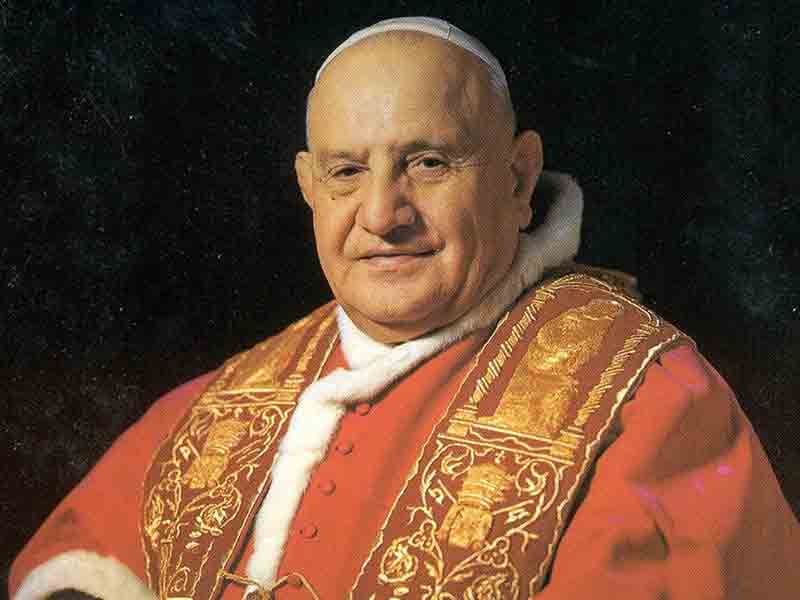Have you ever heard of Jules Isaac? I certainly hadn’t heard of him when I had a chance encounter with Toronto tax lawyer Norman Tobias. But then, Tobias says he doesn’t believe in coincidence.

Jules Isaac and the Second Vatican Council by
Norman Tobias. Palgrave Macmillan
Tobias recently published a book, titled Jewish Conscience of the Church: Jules Isaac and the Second Vatican Council, which gives readers a long overdue opportunity to learn about the lasting contribution Isaac made to Jews the world over, and to society as a whole.
The book’s focal point is Isaac’s unpublicized audience with Pope John XXIII, in which he succeeded in influencing the pope’s thinking. This led to the Catholic Church radically revising its stance on Jews and Judaism in the 1960s, which is reflected in the content of the 1965 Nostra aetate, the Declaration on the Relation of the Church with Non-Christian Religions.
Although the Nostra aetate is about respecting all religions – singling out Muslims, as well – it specifically acknowledges the church’s “contempt” toward the Jews for over 1,500 years and states:
“Furthermore, in her rejection of every persecution against any man, the church, mindful of the patrimony she shares with the Jews and moved not by political reasons but by the Gospel’s spiritual love, decries hatred, persecutions, displays of anti-Semitism, directed against Jews at any time and by anyone.”
This is much more than an important historical accomplishment.
Jules Isaac was an internationally known French historian, teacher, academic and published author who lived through two world wars. His work and experiences are as relevant as ever, in light of the current anti-Semitism around the world, and in France, in particular. Tobias deftly paints a contextual picture for readers – geographically, culturally and historically – punctuated with names of personalities like Leo Baeck, movements such as libertarian socialism and Marxism, places such as Vichy and Auschwitz, and events such as the Dreyfus trial and the Holocaust.
The chapters chronicle every known detail of Isaac’s life, to highlight his eventual mission. And through research that borders on sleuthing, Tobias was able to weave Isaac’s personal story with behind-the-scenes intrigue at the Vatican, to try and answer the question of why Isaac’s audience with the pope and his influence over the Nostra aetate remained a largely unknown – if not an intentionally held – secret for so long.
The drama unfolds in unemotional prose, as Tobias is determined to let readers draw their own inevitable conclusions through undisputed facts. While his passion for the subject is evident, his style is academic, precise and meticulously footnoted. Tobias focuses his beam of incisive analysis to illuminate Isaac’s role in a pivotal moment in religious history.
Tobias is a foremost expert on Isaac and details with specificity the names of intersections he crossed, schools he taught at, restaurants he ate in and colleagues with whom he associated, with a specific focus on Charles Peguy, a Christian who influenced Isaac greatly from the time they met in 1897, when Isaac was 20 years old.
The book follows over 10 years of research, which fed Tobias’ master’s and PhD research in religious studies. But whereas his dissertation was based on the highly supported hypothesis that Isaac directly influenced the pope, the book, in Tobias’ own words, contains “the smoking gun.”
Proof eventually came through an unpredictable labyrinth of conversations and meetings with like-minded and not so like-minded academics, clergy and descendants of key figures who actually interacted with Isaac. These exchanges ultimately pointed the way to a single, handwritten piece of paper, wherein Pope John XXIII notes that his ideas were influenced by Isaac. These personal notes prove Isaac’s contribution to the church’s shift in policy.
Tobias was able to trace the existence of this sheet of paper to a secret vault in the Vatican and obtain a copy of it. Not surprisingly, Tobias says that requesting papers from the Vatican’s records bears no resemblance to asking for numbered files at a reference library: the papers are simply stored in a multitude of unlabelled boxes.
If I’m impressed by the author’s accomplishment, I am awed by his subject. Isaac pursued his goals and lived his life with resilience and grace, notwithstanding multiple professional setbacks and personal tragedies. In the year following his bar mitzvah, Isaac lost both of his parents, six days apart, and was sent to boarding school. On Oct. 7, 1943, Isaac went for a long walk. During his absence, the Gestapo raided his abode, arresting his wife, daughter, son-in-law and one of his sons. His son eventually escaped, but the other three were murdered in Auschwitz.
Isaac’s wife managed to smuggle a note to him out of the Drancy transit camp. Along with reassurances and expressions of love, she writes: “My friend, take care of yourself, have confidence and finish your work, the world is waiting for it.” Isaac hand-labelled it, “The most precious of all papers,” and carried it on him for the rest of his life, while continuing his studies and writing about the anti-Jewish bias in the Gospels and Christian theology.
In the shadow of his own unspeakable loss, Isaac set out to rectify the teachings of the church around the subject of Judaism. Isaac’s efforts led to the Pope adding to the agenda of the Second Vatican Council and radically transforming Catholic teachings about the Jews. It put an end to over 15 centuries of anti-Jewish rhetoric, which undoubtedly fostered anti-Semitism.
Jules Isaac is a shining example of the power of one individual to effect change. He spent his life persevering in pursuit of a goal and Tobias, in turn, worked in the pursuit of bringing Isaac’s legacy to prominence. Tobias is currently one of six members of the Canadian Rabbinic Caucus who is involved in its renewed, systematic dialogue with the Canadian Conference of Catholic Bishops. In a sense, I like to think he’s continuing Isaac’s work.
